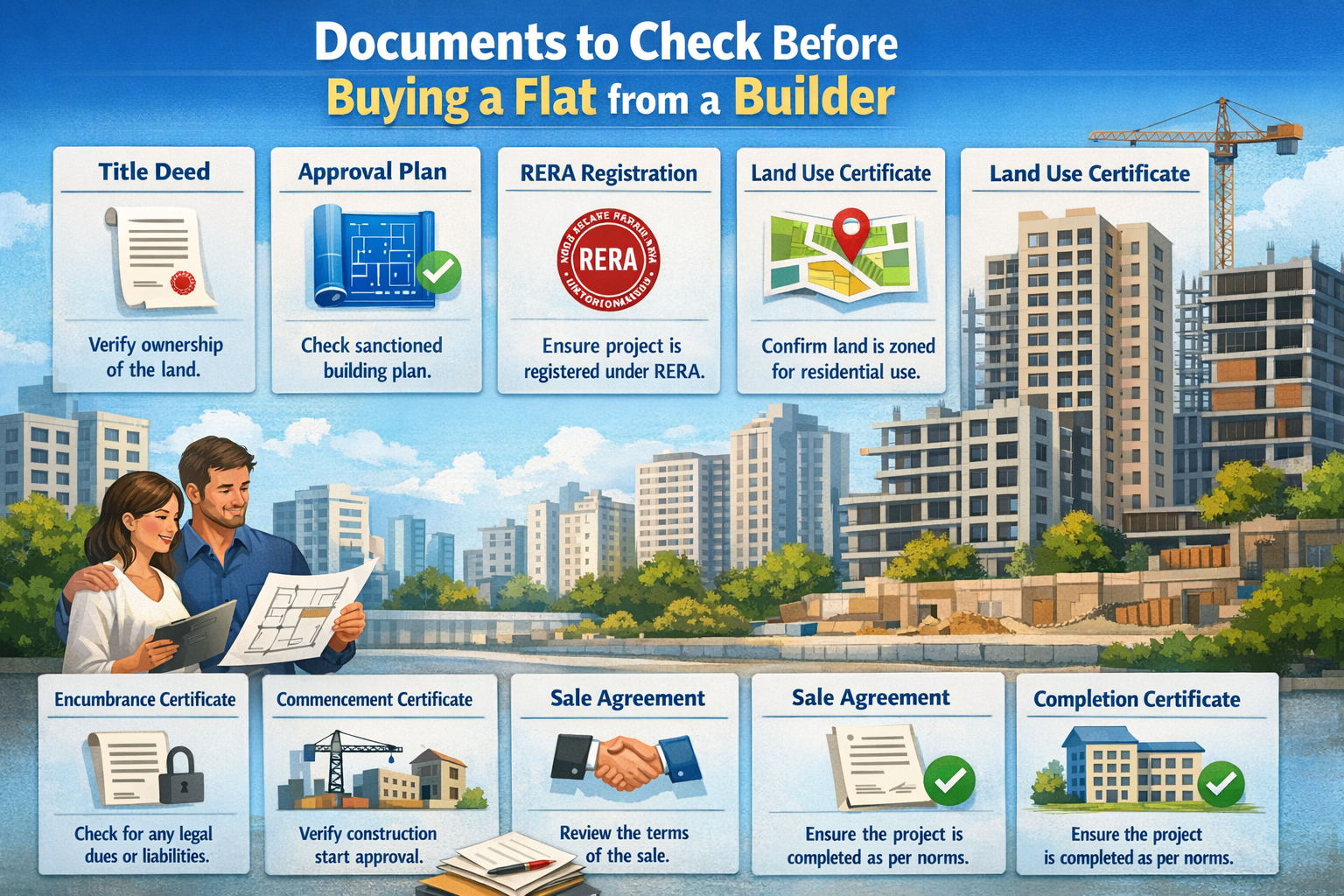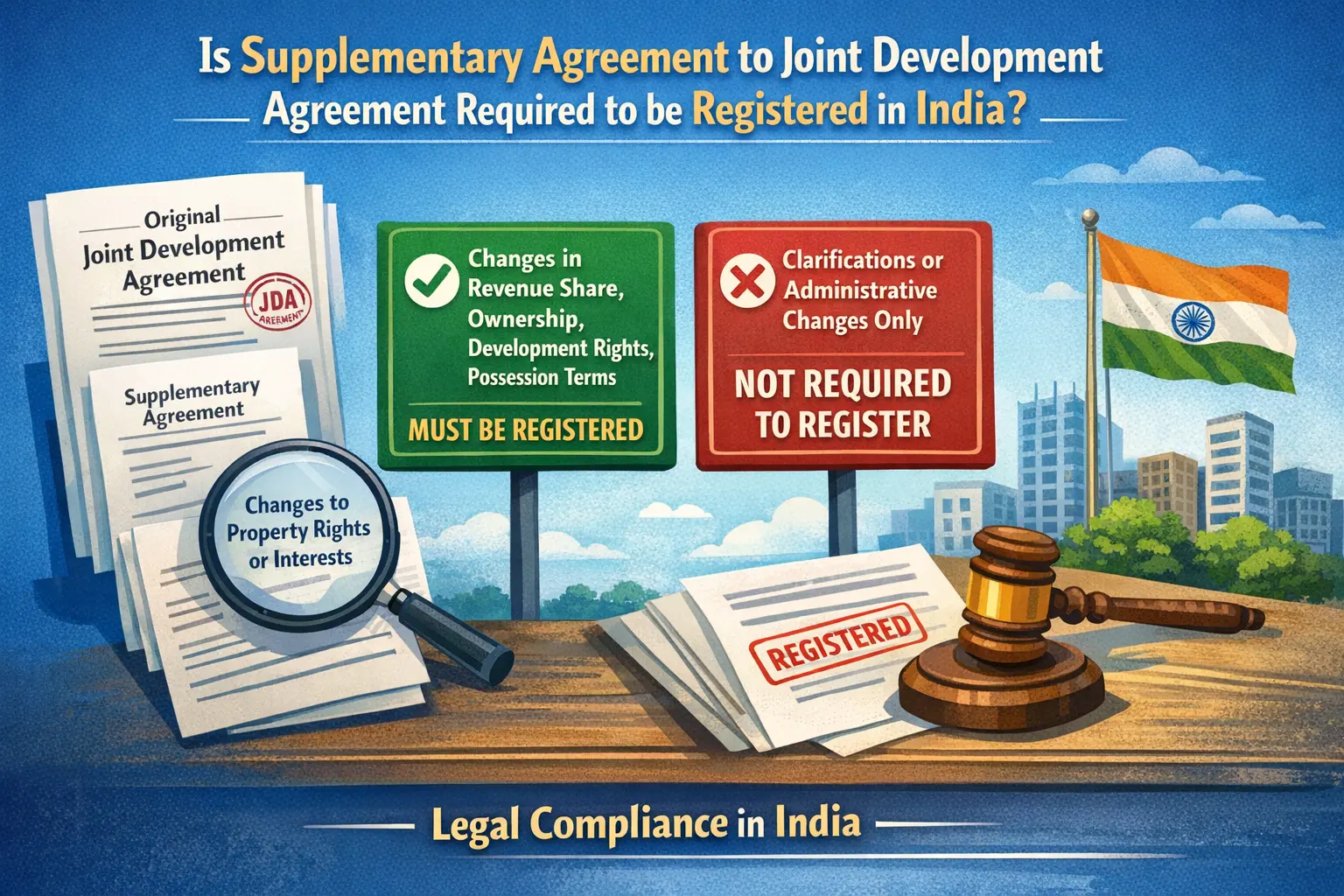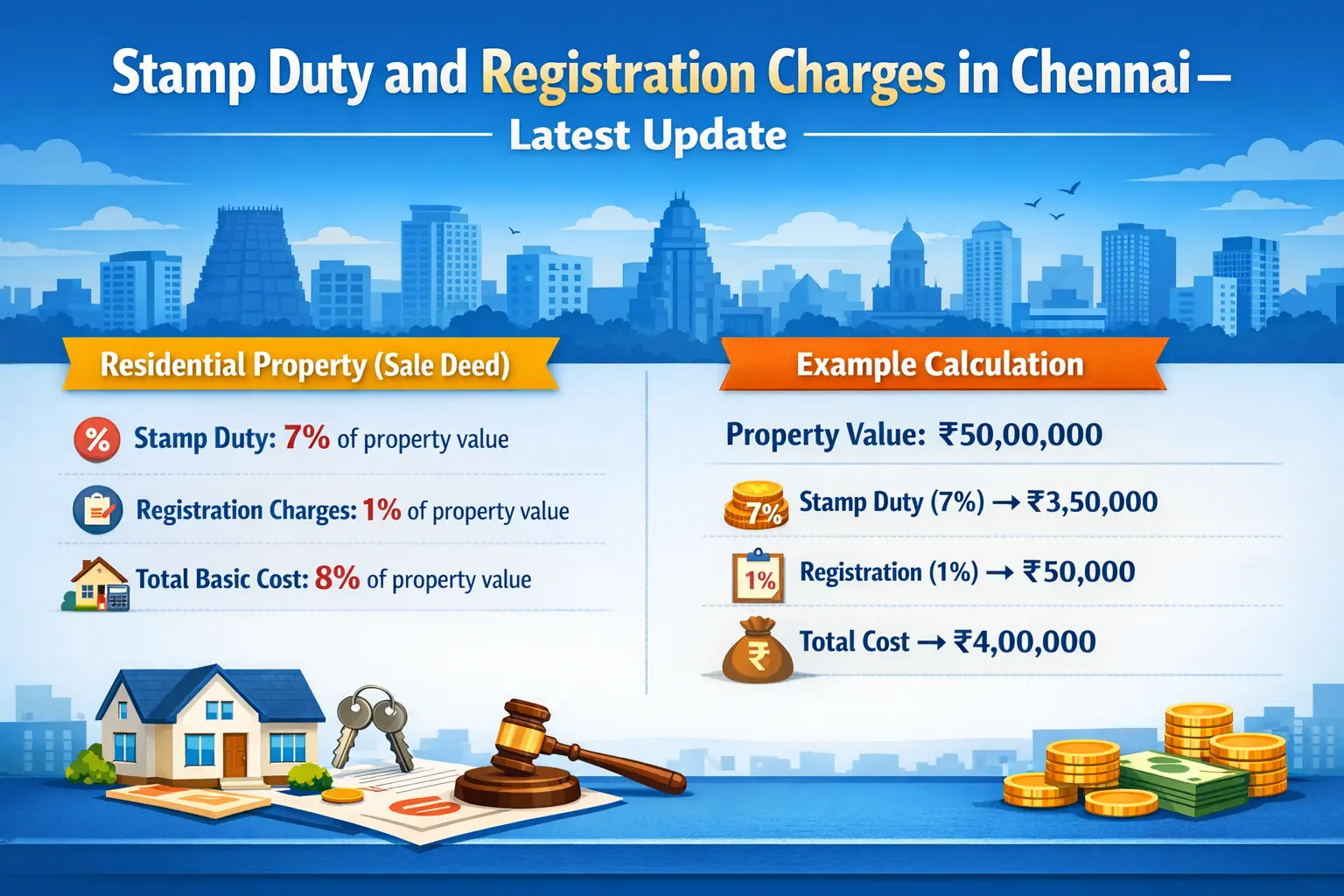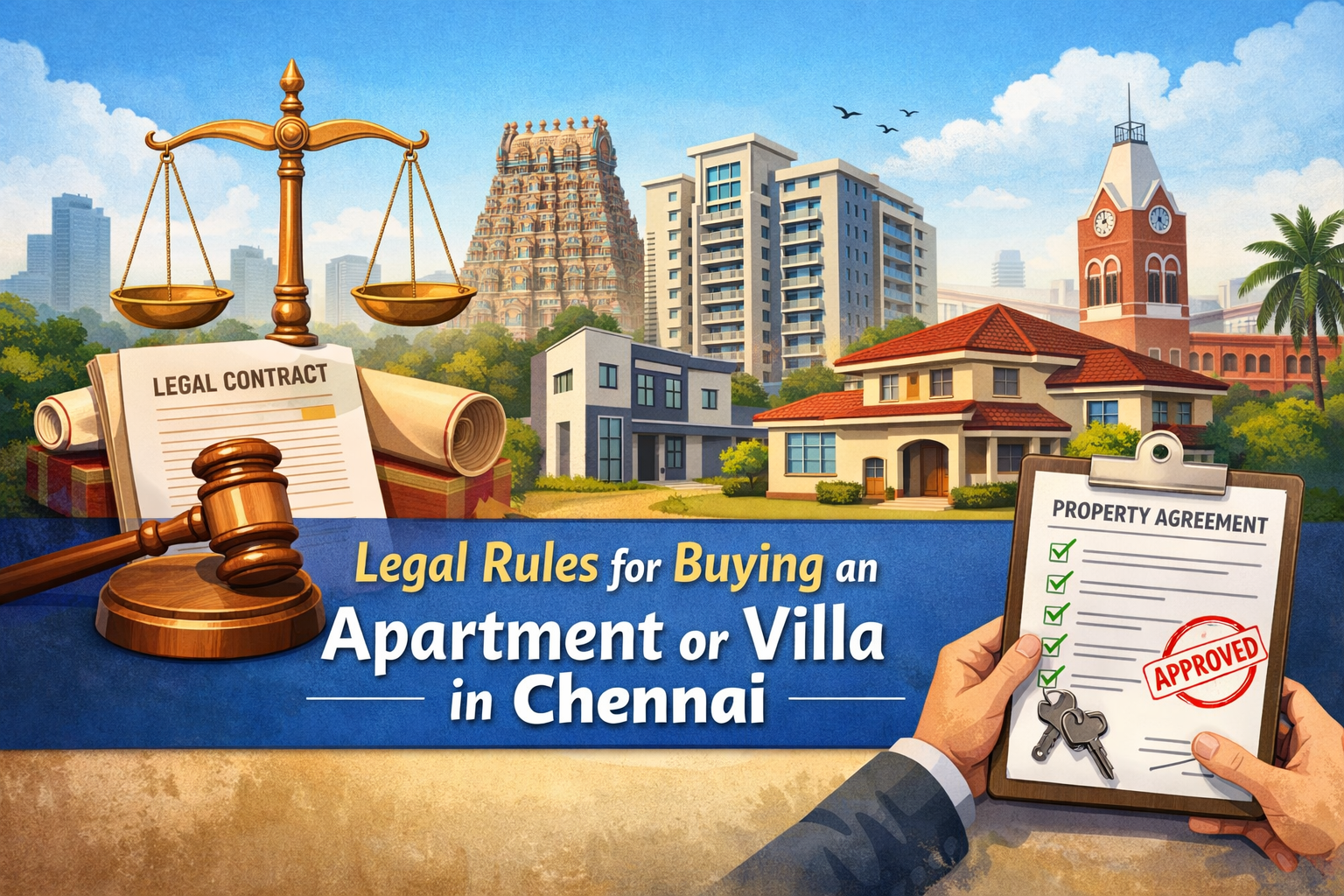Buying land is a major financial and personal decision. Whether you are purchasing land to build your dream home, start a business, or simply as an investment, it is essential to ensure that the land is legally safe, properly approved, and suitable for your intended use. One of the most important aspects to understand in this process is the concept of land zoning and CMDA approval, particularly if you're buying in or around the Chennai Metropolitan Area.
What Is Land Zoning?
Land zoning is a system used by urban planning authorities to regulate land use in different areas of a city or region. It involves dividing the land into various zones based on the type of activity that is allowed in those zones. The objective is to ensure organized, sustainable, and balanced development of the city, while avoiding conflicts between incompatible land uses.
For example, a residential area is meant for housing, and heavy industries or large commercial establishments are generally not allowed there, because they can disturb the peace and safety of the locality. Similarly, an industrial zone is designed for factories and manufacturing units, where setting up a school or residential complex would not be appropriate.
Zoning helps ensure that the right type of development takes place in the right locations. It also protects the value of your investment because properties located in correctly zoned areas have more legal clarity and potential for growth.
In most metropolitan cities in India, including Chennai, zoning is guided by the Master Plan and Detailed Development Plans issued by urban planning authorities like the Chennai Metropolitan Development Authority (CMDA). The zoning categories include residential, commercial, industrial, institutional, mixed-use, agricultural, and recreational zones. Each zone comes with specific regulations on what kind of buildings can be constructed, the number of floors allowed, the space around buildings (known as setbacks), and other construction norms.
Before buying any land, it is critical to check the zoning of that particular parcel. If your intended use of the land (for example, to build a house) is not allowed in that zone (such as if the land is zoned as agricultural or industrial), you may face legal consequences, including demolition of any structure you build.
Zoning information can usually be obtained from the Master Plan available on the CMDA website or by visiting the CMDA office in person. It is also advisable to consult with a qualified town planner or lawyer to interpret the zoning rules, as they can sometimes be complex.
What Is CMDA?
The Chennai Metropolitan Development Authority (CMDA) is the statutory body responsible for regulating and planning urban development in the Chennai Metropolitan Area, which includes not just the city of Chennai but also surrounding suburban regions like Tambaram, Avadi, and parts of Kanchipuram and Thiruvallur districts.
CMDA’s role is to ensure that development in the Chennai region is orderly, legal, and follows the approved master plans. It prepares detailed development plans, grants layout and building approvals, monitors illegal constructions, and works in coordination with local bodies like the Corporation of Chennai, municipalities, and panchayats.
What Is CMDA Approval and Why Is It Important?
CMDA approval refers to the official permission granted by the CMDA for land development (such as forming a layout) or for building construction. This approval confirms that the land or construction project complies with the rules and guidelines specified in the CMDA’s planning documents.
There are two major types of CMDA approvals a buyer needs to be aware of:
- Layout Approval: This is required when a large parcel of land is divided into smaller plots for sale. Developers must get the layout approved by CMDA before selling individual plots to buyers. The approval ensures that the layout has proper roads, access to infrastructure like water and drainage, and conforms to the zoning and planning rules.
- Building Plan Approval: This is required when constructing a building on an individual plot. Whether it is a house, an apartment complex, or a commercial building, the plan must be submitted to CMDA or the local planning authority for approval. The plan will be checked for compliance with floor space index (FSI), setback rules, height restrictions, parking requirements, and other building regulations.
It is crucial for buyers to ensure that both layout and building approvals are in place before purchasing. If the plot is part of an unapproved layout, or if the building on the land has not been sanctioned by CMDA, you could face several issues, including the denial of water and electricity connections, rejection of bank loans, legal action from authorities, and even demolition orders.
Buying CMDA-approved land gives you peace of mind that the property is legally compliant and recognized by government bodies. This also makes it easier to get financing from banks, obtain construction permits, and sell the property in the future.
How to Check CMDA Approval and Zoning
To check whether a land parcel has CMDA approval and to verify its zoning, you should follow a few key steps:
- Ask for the CMDA Layout Approval Number: Every approved layout will have a reference number issued by CMDA. You can verify this number on the official CMDA website or by visiting their office.
- Get a Copy of the Approval Letter: The developer or seller should provide you with a copy of the CMDA layout approval letter and any relevant building plan approvals. Verify that these documents are genuine and match the property you are considering.
- Check the Land Use Classification: Refer to the Master Plan of CMDA to determine the zoning of the land. This tells you whether the land is residential, commercial, agricultural, or otherwise, and whether your intended use is allowed.
- Consult a Legal Expert: Land laws and urban planning rules can be complicated. It is always advisable to have a lawyer or real estate consultant go through the documents and ensure there are no red flags.
Common Mistakes Buyers Make
Many buyers, especially first-time investors or homebuyers, make the mistake of assuming that all land being sold is legally safe and approved. This is not always the case. In fact, several layouts in the suburbs of Chennai and nearby areas have been developed without CMDA approval. These may be marketed by real estate agents or small developers, often without informing buyers of the risks.
Another common mistake is relying solely on panchayat approval or local body endorsements. In areas under CMDA jurisdiction, panchayat or municipality approval alone is not sufficient. CMDA or DTCP (for areas outside CMDA) approval is mandatory. Buying land with only panchayat approval may lead to serious legal trouble, including refusal of building permits and denial of essential services.
Risks of Buying Unapproved or Improperly Zoned Land
The consequences of buying land that is unapproved or not properly zoned are significant. First, you may not be allowed to construct anything on the land. Even if you manage to build something, it may be considered illegal and subject to fines or demolition by authorities. You may also struggle to get basic amenities like water supply, electricity, and sewage connections.
Furthermore, banks typically refuse to give loans for properties that are not CMDA-approved. This limits your financing options and reduces the resale value of your property. If you try to sell the property in the future, many buyers will be hesitant unless the land is legally approved.
You also expose yourself to the risk of legal disputes over ownership or land use. In some cases, the land may be classified as government poramboke land, a water body, or reserved for public use—making it entirely illegal to buy or build on.
What Buyers Should Always Do Before Purchasing Land
Before buying any land in or around Chennai, you should take the following precautions:
- Verify whether the land is located within the Chennai Metropolitan Area and if it falls under CMDA jurisdiction.
- Check the zoning classification of the land and confirm that your intended use is permitted in that zone.
- Ensure that the layout has been approved by CMDA and that the seller can provide the official approval documents.
- If there is already a building on the plot, verify that the construction was done with a proper building plan approved by CMDA or the relevant authority.
- Request and examine key documents such as the patta (ownership record), parent title deed, encumbrance certificate (EC), and field measurement sketch (FMB).
- Visit the site personally to understand its physical condition, road access, surroundings, and proximity to basic infrastructure.
- Engage a lawyer to conduct a full legal due diligence, including verification of the title and checking for litigation or government claims on the land.
Concussion
Buying land is not just about location and price; it's about legality, approval, and peace of mind. No matter how attractive a deal may seem, you must never compromise on due diligence. Always check for zoning and CMDA approval before signing any agreement or making any payment. Unapproved plots or illegally zoned land can turn your dream investment into a nightmare of court cases, penalties, and financial losses. On the other hand, buying properly zoned and CMDA-approved land ensures that your property is legally safe, future-proof, and has full access to infrastructure and resale potential. Make informed decisions, seek expert advice when necessary, and take the time to verify everything. It might delay your purchase slightly—but it will save you from years of legal and financial trouble.
https://www.livehomes.in/blogs













